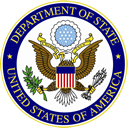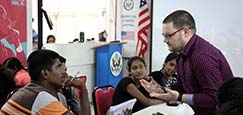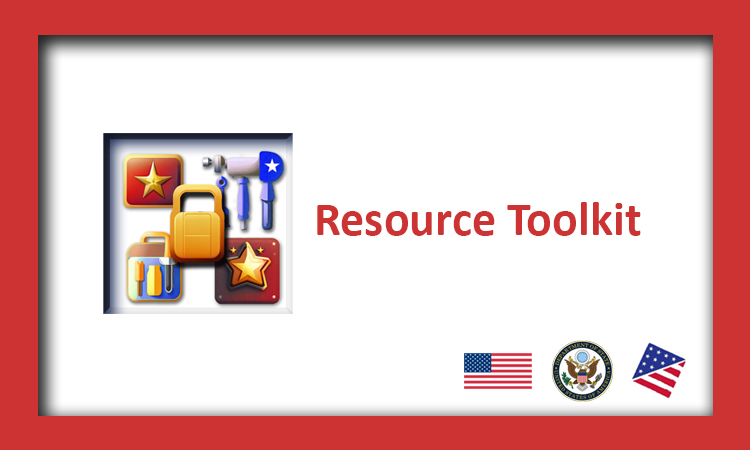PRESIDENTS’ DAY
PROGRAM TOOLKIT FOR AMERICAN SPACES
This program toolkit is designed for programming at American Spaces to create a greater awareness of the role and history of the U.S. presidency.
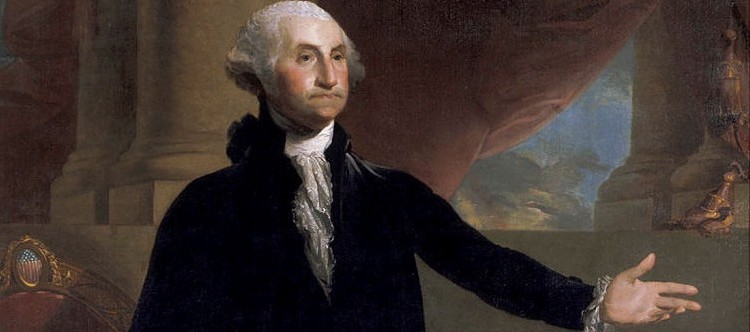
LESSON PLANS
Public Broadcasting Service
This site contains 60-second videos of all past U.S. presidents, lesson plans on select presidents, activities, and resources on the powers of the U.S. presidency
Smithsonian Educational Resources
This site contains several lesson plans for grades 3-12 about campaigning, inaugurations, presidential roles, and life in the White House.
WHAT IS PRESIDENTS’ DAY?
Presidents’ Day is an official, national holiday that is celebrated on the third Monday of February in the United States. The holiday originated in the 1880s to honor George Washington, the country’s first president. Although originally celebrated on February 22 – George Washington’s Birthday, in 1968, Congress passed the Uniform Monday bill, which moved several federal holidays (including Presidents’ Day, Memorial Day, and Labor Day) to Mondays to give workers longer weekends.
Over time, Presidents’ Day was also designated the holiday for honoring the country’s sixteenth president Abraham Lincoln, and today is considered a holiday that honors all U.S. presidents.
RESOURCES
Key Vocabulary
George Washington – commander of the Continental Army during the American Revolutionary War and served two terms as the first U.S. President, from 1789-1797. As president, Washington realized that the new Constitution had to be made to work if democracy was to take root on American soil.
Abraham Lincoln – 16th president of the United States and is regarded as an American hero for his role in preserving the Union by leading the north to victory in the American Civil War and for ending slavery in the United States.
Liberty – The state of being free within society from oppressive restrictions imposed by authority on one’s way of life, behavior, or political views.
Presidential Powers – Gives authority to the President to propose legislation to Congress, submit the annual federal budget to Congress, sign or veto legislation passed by Congress, nominate executive branch officials and federal judges, serve as Commander in Chief of armed forces, negotiate treaties with other nations.
ShareAmerica
- How much do you know about the American Presidents?
- The U.S. Presidents are memorialized in many ways
Images
Portraits of U.S. Presidents
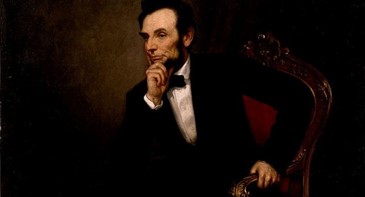
DISCUSSION QUESTIONS
- George Washington and Abraham Lincoln are both considered great leaders. What characteristics do you think they each possessed that made them so?
- Both Washington and Lincoln espoused the importance of “liberty.” What does liberty mean to you?
FILMS
Consider showing one of these films for Presidents’ Day.
- George Washington* (45 minutes) – This documentary explores George Washington’s role in the American Revolution, his path to the presidency, and his impact on American democracy.
- Abraham Lincoln* (46 minutes) – This film chronicles Abraham Lincoln’s unbreakable desire to preserve the United States and his role in ending slavery.
- Thomas Jefferson* (45 minutes) – This video examines Jefferson’s role as the author of the Declaration of Independence and the architect behind the largest territorial expansion in U.S. history.
- Theodore Roosevelt* (43 minutes) – This documentary explores Roosevelt’s role in preserving American’s natural beauty and his impact on U.S. foreign policy.
ADDITIONAL READING AND VIEWING
- Monumental Presidents: A journey across America to explore presidential landmarks, libraries, and memorials
- The Presidents Collections: Biographies and Portraits The White House Historical Association offers a timeline of presidents from Washington to the president.
- The History of Presidents’ Day: Voice of America Learning English Essay
Overdrive (Libby) Books

John Adams
David McCullough’s Pulitzer Prize–winning biography captures the life of John Adams, the fiercely principled second U.S. president who championed independence and steered the nation through its fragile early years. With vivid detail, McCullough explores Adams’s political achievements, irascible nature, and enduring bond with Abigail, crafting a powerful narrative of revolution, leadership, and one of the most influential figures in American history.
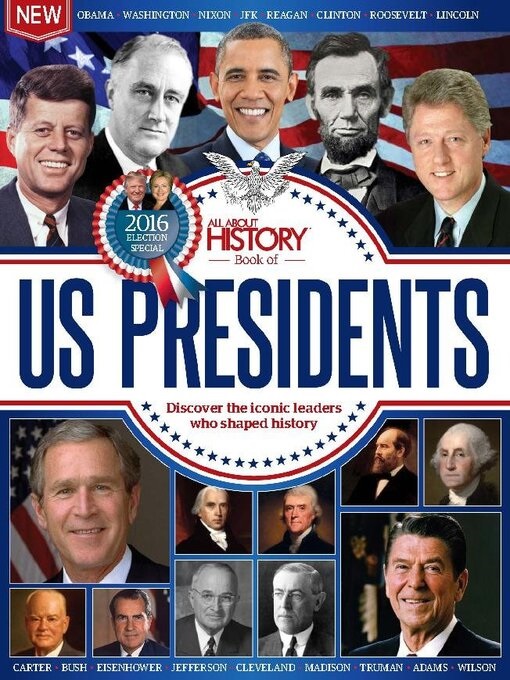
All About History Book of US Presidents
This richly illustrated volume from All About History offers an engaging, family-friendly journey through the lives and legacies of America’s presidents—from George Washington’s foundational leadership to Abraham Lincoln’s wartime resolve and the political drama of lesser-known commanders-in-chief. Covering triumphs, failures, scandals, and reforms, it brings historical figures to life with vivid storytelling and accessible insights, providing a dynamic snapshot of the evolving U.S. presidency and its lasting impact on the nation and the world.

An Unfinished Life
Robert Dallek’s acclaimed biography of John F. Kennedy draws on newly opened archives and fresh sources to reveal a richly detailed and balanced portrait of America’s 35th president. The book explores JFK’s hidden health struggles, personal indiscretions, political appointments, and how his presidency might have shaped Vietnam policy had he lived. Dallek captures both the charisma and contradictions of a leader whose life, filled with promise and complexity, ended far too soon but left an indelible mark on American history.

LIFE Jimmy Carter
This commemorative edition of LIFE honors Jimmy Carter, America’s longest-lived president, reflecting on his enduring legacy as a humanitarian, peacemaker, and principled leader. Though his presidency faced economic struggles and foreign crises, Carter achieved a landmark peace agreement through the Camp David Accords and laid the groundwork for a new global standard in diplomacy and human rights. His post-presidency decades were marked by tireless advocacy through the Carter Center and culminated in a Nobel Peace Prize. The issue also highlights his lifelong partnership with Rosalynn and his extraordinary journey from Georgia farmer to global statesman.

Thomas Jefferson
In this acclaimed biography, Jon Meacham paints a vivid and deeply human portrait of Thomas Jefferson as a brilliant and complex statesman whose passions and contradictions shaped the American republic. Drawing from extensive archives and unpublished presidential papers, Meacham explores Jefferson’s intellect, political mastery, personal appetites, and enduring influence. As both visionary and pragmatist, Jefferson navigated fierce partisanship and foreign threats to help forge the foundations of popular government—offering a compelling story of leadership and legacy that still resonates today.

Lincoln
In this concise yet rich portrait, historian Allen C. Guelzo delves into the intellectual depths of Abraham Lincoln, revealing a self-taught thinker driven by moral philosophy and democratic ideals. Far from being merely a homespun politician, Lincoln emerges as a complex Enlightenment figure who grappled with profound questions of equality, liberty, and the rule of law. Guelzo explores Lincoln’s enduring struggle to balance individual freedom with the moral imperatives of liberal democracy, offering fresh insight into his legacy as a leader who sought to ground American politics in principled, ethical foundations.

James Madison
Jeff Broadwater’s biography reveals James Madison as both a visionary political thinker and a pragmatic leader who played pivotal roles in shaping the Constitution, securing religious liberty, and navigating America through the War of 1812. While Madison demonstrated resilience and adaptability in politics and war, Broadwater also examines the contradictions in his thinking—particularly on slavery—where his intellectual clarity faltered. This deeply researched portrait captures Madison’s enduring influence on the foundations of the American republic and the complexities that defined his life and legacy.

Personal Memoirs of Ulysses S. Grant
Widely regarded as the greatest literary work by a U.S. president, Ulysses S. Grant’s memoirs offer a powerful and unflinching account of his life—from frontier childhood to Civil War command—written with striking clarity and humility. Composed while dying of cancer and edited with Mark Twain’s support, the book captures Grant’s resilience, moral perspective, and commitment to historical truth. With a desire to provide for his family and do justice to friend and foe alike, Grant produced a timeless reflection on leadership, sacrifice, and the costs of war.

In this incisive biography, Jacob Weisberg presents a nuanced examination of Ronald Reagan, the transformative president who reshaped American politics and contributed to the Cold War’s end. Blending political insight with psychological depth, Weisberg portrays Reagan as a committed conservative who nonetheless valued pragmatism, compromise, and the moral imperative of nuclear disarmament. The book challenges partisan narratives to reveal a more complex and consequential leader whose influence continues to shape American political life.
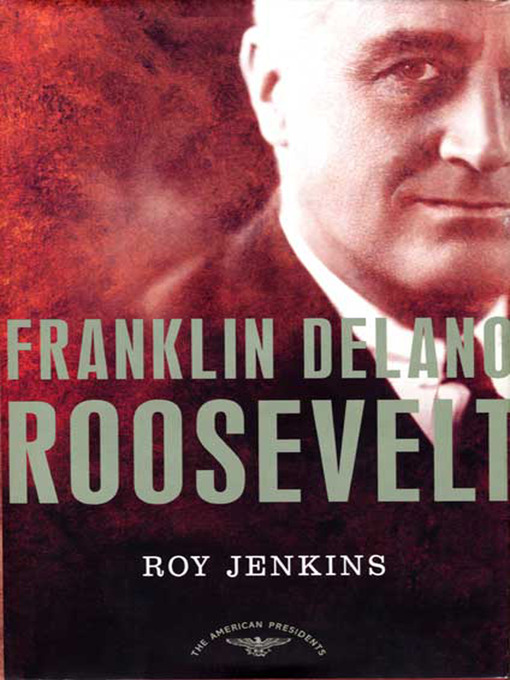
Franklin Delano Roosevelt
Roy Jenkins delivers a compelling and elegant portrait of FDR, the only U.S. president elected more than twice and one of the most consequential leaders in American history. Through rich analysis, Jenkins explores Roosevelt’s political agility, personal magnetism, and transformative leadership during a time of immense global and domestic upheaval. The book also highlights the critical influence of Eleanor Roosevelt, both as a partner and pioneering reformer. Completed posthumously by historian Richard Neustadt, this biography offers a vivid and authoritative account of a president whose legacy continues to shape the modern world.

TIME Donald Trump
TIME’s special issue chronicles President Trump’s return to the presidency. It includes highlights of the 2024 campaign, in which Trump triumphed despite well-funded party rivals and two assassination attempts. The issue also contains an interview with Trump, campaign photos, presidential debate summaries, and the story of why Trump selected JD Vance as his running mate.

Washington
Ron Chernow’s Pulitzer Prize–winning biography offers a sweeping, intimate portrait of George Washington, revealing the dynamic leader behind the myth. With unmatched depth and narrative flair, Chernow traces Washington’s life from his adventurous youth and Revolutionary War command to his essential role at the Constitutional Convention and his precedent-setting presidency. Drawing from exhaustive research, the book redefines Washington as a passionate and politically astute figure whose vision and resolve were critical in shaping the American republic and its enduring institutions.
* American Spaces can screen Kanopy films at their Space if the films have public performance rights. Visit our screening permission guidelines for more details.
The views expressed in these links and resources do not necessarily reflect those of the U.S. government.
Updated June 2025

